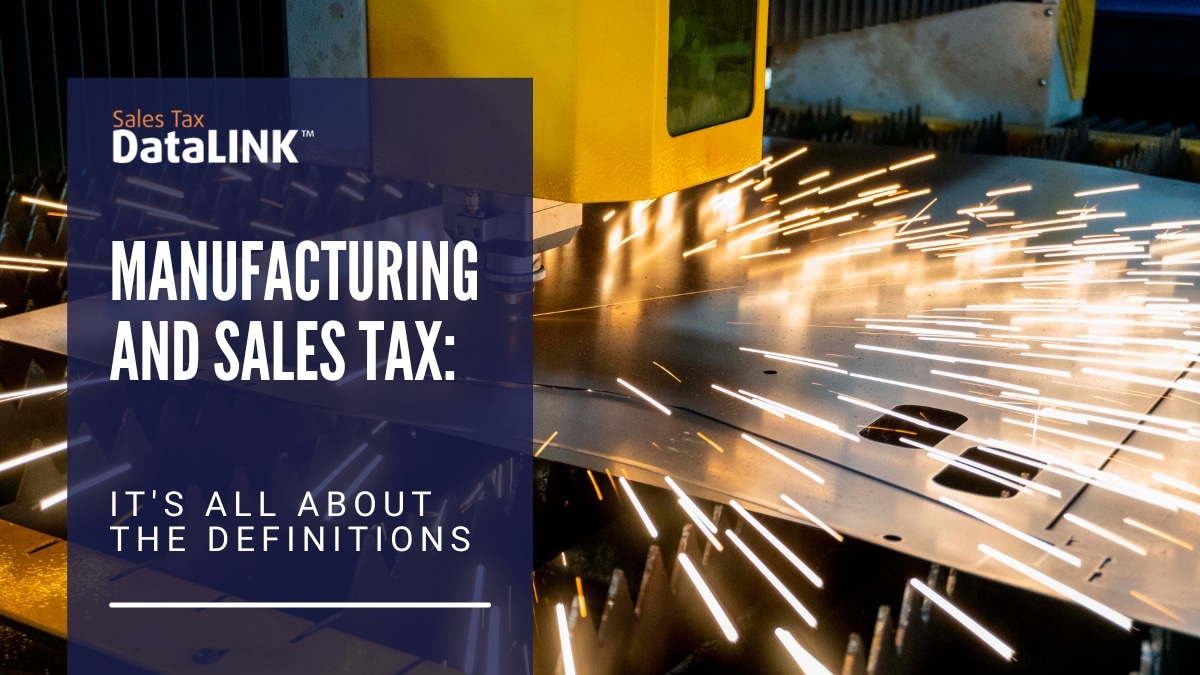Manufacturing and Sales Tax in Various States
Iowa’s new sales and use tax laws redefine manufacturing. A business that files for sales tax exemptions for manufacturing machinery must keep that machinery in a place where the main business of the day is manufacturing, not retail sales.
Florida is eliminating the sales tax on manufacturing machinery, assuming the machinery is in a fixed place used primarily for manufacturing.”Primarily” here means 50% of the time.
Washington exempts manufacturing machinery only if that machinery has a useful life of one year or more.
You might think that a machine used in manufacturing would always be exempt from sales tax in every state that has that exemption. But, just as room temperature food is exempt from sales tax in many states where hot food is not, the context can make a difference.
Defining machinery
Texas gets very specific: “The manufacturing exemption,” the state tax code says, “applies to machinery or equipment that causes a physical or chemical change in a product in order to make it saleable.”
In Texas, your machine is sales tax exempt because of the kind of machine it is. Go ahead and keep it in your retail warehouse and use it less than 50% of the time. If it causes a physical or chemical change, it’s manufacturing machinery.
Other states define manufacturing machinery by the location or the percentage of time spent in manufacturing by the company.
Some states exempt manufacturing machinery, but not its parts. You can’t assume that parts will be exempt from sales tax just because the machinery is.
Defining manufacturing
An Arkansas court recently declared that a company couldn’t benefit from the manufacturing machinery exemption because they weren’t a manufacturer. The company purified water, using a complex process involving machinery. Arkansas law doesn’t define “manufacturing.” Instead, it states that the term “manufacturing . . . refer[s] to and include[s] those operations commonly understood within [its] ordinary meaning.” The court figured that the company was making alterations to water, but could not be said to have manufactured that water.
Many states use that “ordinary meaning” approach, but some specify that manufacturing must make a “significant change.” It’s easy to end up in court with definitions like this.
Keeping up
Manufacturers need to determine, first, which jurisdictions they must pay attention to. When it comes to manufacturing machinery, the machine’s location is usually the deciding factor. That is, an Illinois company buying machinery for their plant in Illinois is covered by the Illinois state sales tax rules.
If you sell manufacturing machinery, you should be sure to have the correct exemption certificates on file for any companies you sell to without charging sales tax. Especially since the end of Quill, you may be held responsible for collecting and remitting sales tax.
For keeping up with sales tax compliance, Sales Tax DATALink offers exceptional service. Try us for free.




